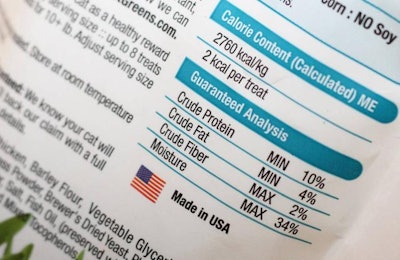
Flint Hills Resources plans to invest more than US$50 million in its Fairmont, Nebraska, USA ethanol plant to install a technology that will produce a high-protein pet food and animal feed ingredient from a portion of the plant’s distiller grains, a co-product of ethanol production.
The new patented technology, called maximized stillage co-products (MSC), was developed exclusively for the dry mill ethanol fuel industry by Fluid Quip Process Technologies. The Fairmont plant will be the fourth – and, to date, the largest – ethanol plant in the world to deploy the technology.
“MSC is an innovative, bolt-on technology that separates and upgrades a portion of distillers grains into a cost-competitive, high-protein feed ingredient intended to help meet the growing need for protein in feed rations around the world,” said Kevin Karasiuk, plant manager at Flint Hills Resources Fairmont. “The technology provides an exciting new platform for Flint Hills Resources to compete in the alternative protein feed ingredient market.”
Distillers grains production facility construction
The Fairmount MSC project will require significant construction including the addition of a new building and two protein dryers. Construction is expected to begin in the spring and will last about 12 months. The project is expected to create about 120 construction jobs. The plant will remain in operation during construction.
The Flint Hills Resources Fairmont plant buys 42 million bushels of corn annually to produce 120 million gallons of ethanol, 310,000 tons of distillers grains and nearly 20 million pounds of distillers corn oil. The plant employs about 60 people.
Fluid Quip Process Technologies will provide the MSC technology, separation equipment, process engineering, construction oversight, and startup support for the Fairmount system.
How the distillers grain system works
Fluid Quip Process Technologies developed the MSC technology by leveraging years of experience in the corn wet mill and ethanol industries to provide solutions for dry mill ethanol facilities. The technology uses a series of mechanical processes to separate protein from the solids leftover after ethanol distillation. Centrifuges are used to isolate protein molecules from residual fiber and carbohydrates. Once the protein is isolated, it is sent to a protein dryer where it is dried into a fine powder. The drying process is essential to ensuring the high-quality of the protein product.


















